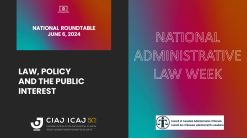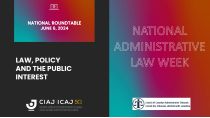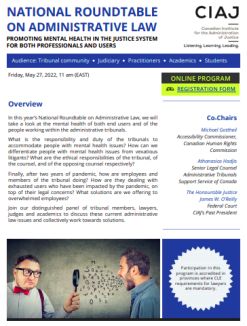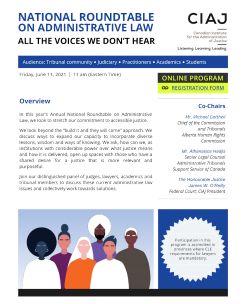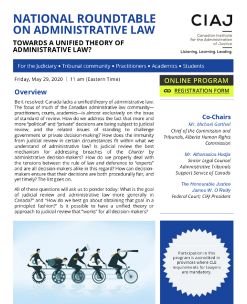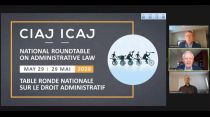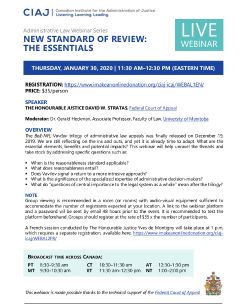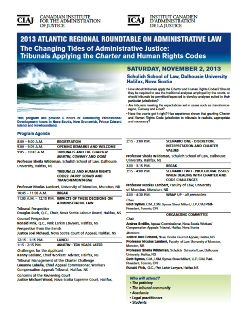Date: June 6, 2024
Location: Ottawa & Online
OVERVIEW
Administrative agencies, Boards, and commissions (ABC) operate in the domain of public law, so have an overriding responsibility to act “in the public interest.” But what is this thing we call “the public interest?” Who is this public, and what are their “interests?” Is there a unified public or, as the SCC said in Berg, every service has its own public?
Should Boards, made up of experts and professionals in a particular field, presume to know the public’s interest, or should they seek out and entertain evidence of that interest? What should we do with the reality that most members of the public will not generally be organized or have the resources to participate on an equal footing with institutional participants. What responsibility do governments have to ensure that boards, tribunals, and commissions have the independence, resources and capacity to access, and properly assess this public interest?
For ABCs with regulatory and policy -making responsibilities, the public interest is even more important.
Regulatory decisions may have significant impacts that extend well beyond the parties to an application or appeals. They may cross geographical and jurisdictional boundaries. They can have significant direct or indirect impacts on social, economic, environmental, and other relations. The decisions can affect generations into the future. The task is polycentric. As the public appears to be increasingly uncertain about the capacity of our democratic institutions to address current important, even existential issues in an intelligible, coherent and non-partisan way, it falls to all of us to confront these conundrums.
This program is part of the second edition of the National Administrative Law Week*, organized jointly by CIAJ and the Council of Canadian Administrative Tribunals (CCAT).
Bilingual program with simultaneous interpretation.
Participation in this program is accredited in provinces where CLE requirements for lawyers are mandatory.
See the roundtable program
CPD Hours:
For provinces where professional hours apply:
- Total: 5h45
- EDI hours: 45 minutes
FEES
CIAJ or CCAT members: $550
Non-members: $750
Students: $95
National Administrative Law Week (2024 Edition)





